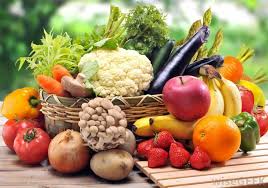Phytochemicals: The Cancer Fighters in Your Foods
Phytochemicals are naturally occurring plant chemicals (phyto means plant in Greek). They provide plants with color, odor and flavor. Once we eat them, however, research shows they can influence the chemical processes inside our bodies in helpful ways.
Findings from laboratory studies have shown that phytochemicals have the potential to:
- Stimulate the immune system
- Block substances we eat, drink and breathe from becoming carcinogens
- Reduce the kind of inflammation that makes cancer growth more likely
- Prevent DNA damage and help with DNA repair
- Reduce the kind of oxidative damage to cells that can spark cancer
- Slow the growth rate of cancer cells
- Trigger damaged cells to commit suicide before they can reproduce
- Help to regulate hormones
Steps to Take Now
While research continues, the best bets for achieving the maximum health benefits possible include:
- Eat a varied diet high in a variety of vegetables, fruits, whole grains and beans
- Favor brightly colored or strongly flavored vegetables and fruits, which are often the best sources of phytochemicals
- Stick to food sources – phytochemicals in supplement form may not be as easily absorbed as those from food.
A Guide to Phytochemicals
Thousands of phytochemicals have been identified so far, and scientists have only begun to investigate their promise. This chart lists some of the phytochemicals attracting serious scientific attention, identifies food sources and outlines potential benefits.
|
Phytochemical(s)
|
Plant Source
|
Possible Benefits
|
|---|---|---|
| Carotenoids (such as beta-carotene, lycopene, lutein, zeaxanthin) |
Red, orange and green fruits and vegetables including broccoli, carrots, cooked tomatoes, leafy greens, sweet potatoes, winter squash, apricots, cantaloupe, oranges and watermelon | May inhibit cancer cell growth, work as antioxidants and improve immune response |
| Flavonoids (such as anthocyanins and quercetin) |
Apples, citrus fruits, onions, soybeans and soy products (tofu, soy milk, edamame, etc.), coffee and tea | May inhibit inflammation and tumor growth; may aid immunity and boost production of detoxifying enzymes in the body |
| Indoles and Glucosinolates (sulforaphane) |
Cruciferous vegetables (broccoli, cabbage, collard greens, kale, cauliflower and Brussels sprouts) | May induce detoxification of carcinogens, limit production of cancer-related hormones, block carcinogens and prevent tumor growth |
| Inositol (phytic acid) |
Bran from corn, oats, rice, rye and wheat, nuts, soybeans and soy products (tofu, soy milk, edamame, etc.) | May retard cell growth and work as antioxidant |
| Isoflavones (daidzein and genistein) |
Soybeans and soy products (tofu, soy milk, edamame, etc.) | May inhibit tumor growth, limit production of cancer-related hormones and generally work as antioxidant |
| Isothiocyanates | Cruciferous vegetables (broccoli, cabbage, collard greens, kale, cauliflower and Brussels sprouts) | May induce detoxification of carcinogens, block tumor growth and work as antioxidants |
| Polyphenols (such as ellagic acid and resveratrol) |
Green tea, grapes, wine, berries, citrus fruits, apples, whole grains and peanuts | May prevent cancer formation, prevent inflammation and work as antioxidants |
| Terpenes (such as perillyl alcohol, limonene, carnosol) |
Cherries, citrus fruit peel, rosemary | May protect cells from becoming cancerous, slow cancer cell growth, strengthen immune function, limit production of cancer-related hormones, fight viruses, work as antioxidants |



